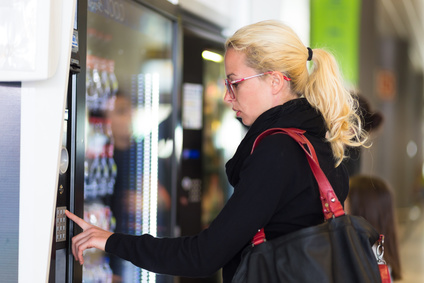I have been highly criticized for advocating the use of diet drinks (artificially sweetened zero-calorie drinks) and artificial sweeteners, and I’ve been maligned for contradicting claims that diet drinks actually interfere with permanent weight loss, adversely affecting metabolism and increasing hunger. Now there’s solid scientific proof that validates what I’ve been saying. New research published in the February 2016 scientific journal Obesity confirms that diet drinks are an effective tool for permanent weight loss.
A team of researchers from the University of Colorado, University of Florida and Temple University followed 303 overweight and obese people for a year, half of them instructed to drink at least 24 ounces of water per day (but no diet drinks) and half of them instructed to drink at least 24 ounces of diet drinks per day. At the end of the year, the researchers concluded that diet drinks were “superior for weight loss and weight maintenance” and that they “can be an effective tool for weight loss and maintenance within the context of a weight management program.”
For years I have strongly recommended diet drinks, along with the behavioral techniques I used for my own 140 pound loss, now maintained for 30 years. I and my patients have reported that diet drinks are a big help for permanent weight loss and been scolded for it. But we were right all along.
Among the findings:
1) During the initial 12-week weight loss period, the diet drinkers lost over 50% more than the water drinkers.
2) During the 40-week maintenance period, the water drinkers regained more than twice as much as the diet drinkers, so that at the end of the study, the diet drinkers lost almost 3 times as much as the water drinkers, and avoided the big regain.
3) Waist circumference in both groups decreased, but the diet drinkers lost significantly more girth than the water drinkers.
4) The diet drinkers experienced a significant reduction in systolic blood pressure while the water drinkers saw no change.
5) Subjects in the water group reported feeling significantly more hunger while the diet drink group reported no increase in hunger.
These results debunk the theories that diet drinks somehow cause weight gain instead of weight loss and that they interfere adversely with metabolism or increase hunger.
All study participants engaged in the same comprehensive cognitive-behavioral weight loss intervention, but half followed instructions to drink 24 ounces of diet drinks per day, and half followed instructions to drink water instead. The diet drinkers could drink more than that if they wanted (water too), and the water drinkers could drink more water, but not diet drinks. A computer-generated randomization schedule assigned participants to the groups, stratified by sex, to assure equal distribution of women and men to each group.
Both groups attended meetings that were led by registered dietitians or clinical psychologists and were instructed on behavioral weight loss strategies. The meetings and program that both groups followed were exactly the same, except for the difference of diet drinks. They attended 12 weekly meetings at first, during the weight loss period of their study, followed by 9 monthly meetings during the maintenance portion. Examples of topics include self-monitoring, portion sizes, reading food labels, physical activity and insights into weight loss maintenance from the National Weight Control Registry.
I want to emphasize that I encourage drinking lots of water to all my readers and patients but advise using diet drinks as a substitute for all soft drinks. Water is the most important of the six essential nutrients and consuming copious amounts of water is essential to good health.
I also want to emphasize that diet drinks or any of the products, medications or procedures I have advocated are not, by themselves, a “magic bullet” for weight loss or weight control. Behavioral change, accomplished by application of an eclectic blend of behavioral therapy technique, is the only “miracle cure” that exists, if personal change and permanent weight loss is thought to be a miracle. However, there are many tools in the tool box of success in permanent weight loss, and diet drinks are one of the most important.
William Anderson is a Licensed Mental Health Counselor who specializes in weight loss, eating disorders and addictions. He solved his own long-time weight problem, losing 140 pounds 30 years ago and has kept it off since. He is the author of The Anderson Method.


